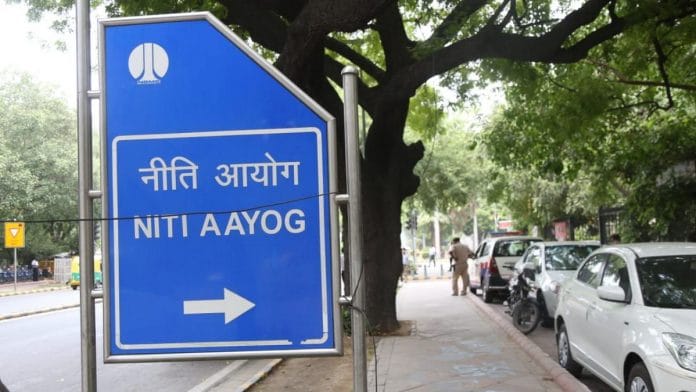New Delhi: The Modi government is looking to involve the premier Indian Institutes of Technology (IITs) to check the efficacy and safety of medical devices, ThePrint has learnt.
This as the government’s think-tank, NITI Aayog, has rejected the Ministry of Health and Family Welfare’s proposal to empower the Central Drugs Standard Control Organisation (CDSCO), India’s apex drug regulator, to regulate all medical devices as well. The union ministry had issued the draft notification in October.
Two senior officials — both at NITI Aayog — confirmed that the think-tank had advised the ministry to build a separate ecosystem for the testing of medical devices in India instead of regulating them under laws meant for medicines and cosmetics.
“Notifying medical devices as ‘drugs’ is an unhealthy way of regulating the segment that is growing by leaps and bounds. It’s a temporary solution,” a senior official at Niti Aayog told ThePrint. “Clearly, CDSCO lacks the expertise and ecosystem to effectively regulate the sector.”
The NITI Aayog has instead recommended that the government involve the IITs to check the safety profile of the medical devices. The IITs have high-class labs that can test the electronic, electro-magnetic and biochemical-run medical devices.
“In our view, IITs should be involved. With around 16 IITs, we can have at least 16 labs to test medical devices,” the official said. “We can also invest in these labs to raise their standards as per our requirements.
“We have no law to check the safety profile of medical devices in India. Also, there is no clinical trials system for devices like we have for medicines,” he added. “NITI Aayog believes that labs at IITs can be used for the purpose until we create a separate infrastructure. Marginal additional investment can be done at IITs as we already have trained, scientific manpower there.”
Also read: Now, an oral drug to treat deadly kala-azar — IIT Hyderabad says it’s faster, better
Ensure separate law for medical devices, says think tank
In a communication sent to the health ministry, the Niti Aayog has highlighted three points on why the move should be re-considered.
In the first, it has suggested that the ministry enact a separate law for medical devices instead of regulating the sector with obsolete medicine laws.
“We have asked the health ministry as to why it wants to regulate medical devices under the Drugs and Cosmetics Act (D&C Act) that dates back to 1940,” the second official said. “When the Act was put in place, there were no medical devices. Notifying medical devices as drugs under D&C Act is an unhealthy way to regulate them.”
The Niti Ayog has also highlighted CDSCO’s lack of ability to check the safety and efficacy of medical devices.
“The CDSCO’s specialisation is in drugs that are chemical-based. How on the earth will a drug regulator check the complicated electronic technology, for instance of a pacemaker?” the first official quoted above said. “Before entrusting CDSCO with the huge mandate at least create manpower and laboratories to test these medical devices.”
For regulating the medicines, CDSCO has an ecosystem consisting of state drug inspectors who collect samples of drugs from the market and send them to the apex laboratories for testing. However, India has no such laboratories for checking the efficacy of medical devices.
India has over 23,000 medical devices in 2,300 categories. The Aayog has advised the ministry to regulate only Category A devices such as pacemakers, heart and knee implants that are intrusive and are fit inside the human body.
“From band-aid, cotton, stretcher, head mirror, dressings to gauze — everything is a medical device. Why does all of this need to be regulated?” the second official asked.
The decision should be thoughtful and the devices should be regulated with respect to public health and not just for the heck of it.”
Also read: IIT mania is costing students quality time at schools. But CBSE, other bodies still sleeping






